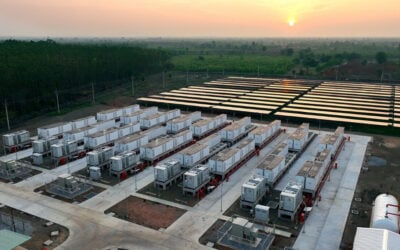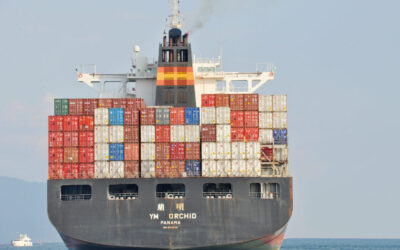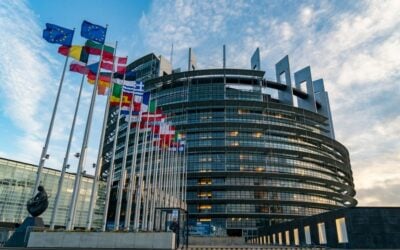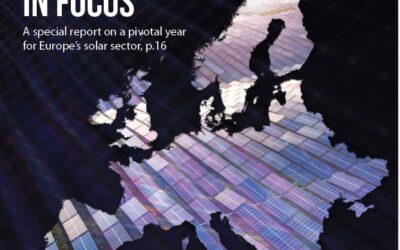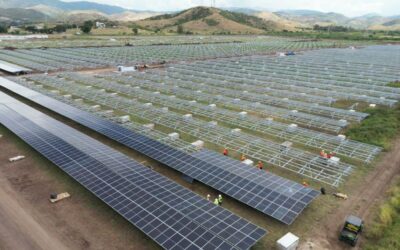The project’s battery energy storage system (BESS). Image: Leclanche.
While most of the press attention around decarbonising transport has centred on electric cars, Leclanché has supplied lithium-ion batteries to power a ferry in Latvia for an EU demonstration project.
The ship, BB Green, is being hailed by Leclanché as “the world’s fastest electric commuter vessel” and holds 70 passengers and bikes. As an Air Supported Vessel, BB Green uses an air cushion in a cavity under the ship to reduce water resistance and support around 80% of the ship’s displacement.
Enjoy 12 months of exclusive analysis
- Regular insight and analysis of the industry’s biggest developments
- In-depth interviews with the industry’s leading figures
- Annual digital subscription to the PV Tech Power journal
- Discounts on Solar Media’s portfolio of events, in-person and virtual
The boat has been launched at Latitude Yachts, which is in Latvia’s capital, Riga. Using two 280kW electric motors, BB Green can reach a top speed of 30 knots, equivalent to 56 kilometres per hour. Leclanché’s lithium titanate (LTO) batteries, with a capacity of 200kWh, give BB Green a range of about 26 kilometres, or 14 nautical miles, which means it is able to travel for around 30 minutes at high speed.
Although the range sounds relatively limited, the five year EU project has been designed with the commuter aspect in mind, and BB Green will be able to stop for 15 to 20 minutes of fast charging at each stop it makes.
“Full electrification of passenger ferries will reduce local emissions and provide silent and comfortable transportation on waterways,” Leclanche vice president Antti Vayrynen said, adding that his company was “proud to serve as integrated battery system supplier” to what was a “very innovative project”.
There were seven other main partners involved in the project as well as Leclanché, including Norwegian shipping company SES Europe; Sweden’s Diab, which provided composite materials and engineering; Echandia Marine, another Swedish company that acted as system integrator; and Aqualiner, a Dutch company which will operate the boat as end user.
The ASV will now embark on a demonstration “tour” from Latvia to Stockholm and then Gothenburg in Sweden before going to Norway’s capital Oslo.
In announcing the BB Green project, Leclanché also announced that it is providing a turnkey energy storage system with 4.3MWh capacity to a Danish project to build the world’s largest electric ferry, expected to be completed in 2017.
The BB Green ferry, powered by LTO batteries. Image: Leclanche.

